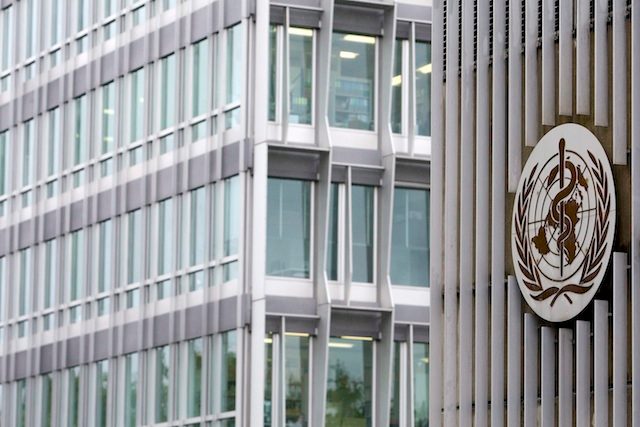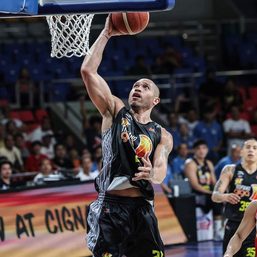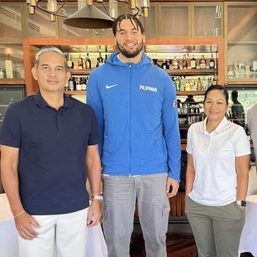SUMMARY
This is AI generated summarization, which may have errors. For context, always refer to the full article.

MONROVIA, Liberia (2nd UPDATE) – Liberia was awaiting Tuesday, August 12, the delivery of an experimental drug to treat Ebola patients as the World Health Organization (WHO) debated the use of such treatments and announced the global death toll for the virus has topped 1,000.
Liberia, one of the hardest hit by the killer virus, said it had requested samples of an experimental drug and that supplies would be brought into the country “by a representative of the US government” later this week. (READ: All doses of experimental Ebola drug sent to West Africa)
There is currently no available cure or vaccine for Ebola, which the World Health Organization has declared a global public health emergency.
The deadly outbreak has until now been limited to Guinea, Liberia, Sierra Leone and Nigeria, all in west Africa where ill-equipped and fragile health systems are struggling to cope.
But countries around the world are taking measures to prevent the tropical disease reaching their shores.
The WHO has scrambled to draft guidelines for the use of experimental medicines at a meeting in Geneva and is to present its conclusions on Tuesday.
Ethical thing to do?
The use of an experimental drug called ZMapp on two Americans and a Spanish priest infected with the virus while working in Africa has opened up an intense ethical debate.
The drug, made by private US company Mapp Pharmaceuticals, has shown promising results but is still in an early phase of development and had only been tested previously on monkeys.
ZMapp is in very short supply, but its use on Western aid workers has sparked controversy and demands that it be made available in Africa.
“Is it ethical to use unregistered medicines to treat people, and if so, what criteria should they meet, and what conditions, and who should be treated?” WHO assistant director-general Marie-Paule Kieny said ahead of Monday’s meeting.
“What is the ethical thing to do?”
Mapp Pharmaceuticals said it had sent all its available supplies to West Africa.
“In responding to the request received this weekend from a West African nation, the available supply of ZMapp is exhausted,” it said in a statement.
“Any decision to use ZMapp must be made by the patients’ medical team,” it said, adding that the drug was “provided at no cost in all cases.”
The company did not reveal which nation received the doses, or how many were sent, but Liberia said it had requested samples which would “be brought in the country by a representative of the US Government later this week”.
“The White House and the United States Food and Drug Administration have approved the request for sample doses of experimental serum to treat Liberian doctors who are currently infected with the deadly Ebola virus disease,” the Liberian presidency said.
‘Everyone is afraid’
The disease has killed 1,013 people since early this year, according to latest figures from the WHO, which says it is worst outbreak since Ebola was discovered four decades ago.
In Liberia – where Ebola has already claimed more than 300 lives – a third province, Lofa, was placed under quarantine on Monday, August 11, after similar measures in Bomba and Grand Cape Mount.
President Ellen Johnson Sirleaf also banned state officials from traveling abroad for a month and ordered those outside the country to return home within a week.
While impoverished Guinea, Liberia and Sierra Leone account for the bulk of the cases, the latest outbreak has spread further afield. Nigeria, Africa’s most populous country, has so far counted two deaths and a number of suspect cases.
Numerous countries have imposed a raft of emergency measures, including flight bans and improved health screenings.
In the latest such move, the Ivory Coast announced on Monday it was banning all flights from the three hardest-hit nations.
And it said in the past few days it had turned back around 100 Liberians trying to flee across the border into Ivory Coast, which has not reported any Ebola cases.
Niger, which also has yet to confirm any cases, has put in place an “emergency plan” to train health workers and boost checks at borders, airports and stations. Togo has also strengthened health screenings.
Japan’s foreign aid agency said Tuesday it was evacuating two dozen staff from Guinea, Liberia and Sierra Leone.
China’s ambassador to Sierra Leone Zhao Yanbo said that seven doctors and one nurse who treated Ebola patients had been put in quarantine, but would not be drawn on whether they were displaying symptoms of the disease.
In addition, 24 nurses in Sierra Leone, most from the military hospital in the capital, have also been quarantined, according to Yanbo and hospital director Sahr Foday.
Foday said a senior physician at Freetown’s Connaught Hospital had contracted Ebola but was responding well to treatment. The nation’s sole virologist, who was at the forefront of its battle against the epidemic, died from Ebola last month. – Rappler.com
Add a comment
How does this make you feel?





There are no comments yet. Add your comment to start the conversation.